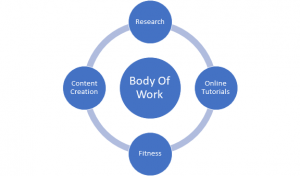We have all heard the saying about how life got in the way of our original plans. The dreams we had as children were upset by critical choices that altered our goals, whether assuming parental responsibilities at an early age or not attending college when the opportunity presented itself.
All in all, these choices become motivational quotes that we have come to live by.
Quotes such as:
When life gives you lemons, make lemonade.
When one door closes, another one opens.
God will never put on you more than you can bear.
These are inspirational sayings that reflect ways of dealing with life’s pitfalls.
But are they enough?
And more importantly, are they helpful?
Strategic introverts are less inclined to live by clichés, bromides, and platitudes because they passionately understand the consequences of their decisions.
In the end, the ability to deal with life’s pitfalls is directly connected to making better decisions and creating systems that serve as a global positioning system (GPS).
We must become slaves to our self-created systems to deal with life’s pitfalls.
Dictionary.com defines a Slave as “A person entirely under the domination of some influence.”
Steve Brown, deputy director of collaborative learning and strategic insight at Southern New Hampshire University (SNHU), said:
In short, systems thinking is about investigating what set of factors and interactions are contributing to or could contribute to a possible outcome.
Self-aware and self-reflective introverts know that they can procrastinate just like anyone else.
I became keenly aware of this notion when I opted to attend graduate school. I knew that maintaining a full-time job as I pursued my master’s degree would require extreme discipline.
I determined that I needed to create a system that allowed me to do these three things:
- Read and research daily
- Maintain an exercise program
- Create new and original content for my blog
If I did these three things daily, I could maintain an enriching and productive lifestyle, despite any obstacles and pitfalls.
My master’s degree program was two years. In those two years, I was able to maintain my process and graduate simultaneously.
To this day, I maintain the same system. Essentially, if plans are institutionalized as a process, it becomes a lifestyle.
I am a slave to my system.
Eminent Psychologist Alfred Adler said that humans are slaves to their motivations.
In other words, whatever we view as aspirational and self-defining becomes a part of our DNA.

Becoming slaves to systems
Western culture exalts the notion of individual freedom. To envision the idea of physical and psychological bondage is anathema to the tenets of independence.
Yet independence and individualism are dangerous in a society where individuals lack self-governance and accountability.
In “The Republic,” Plato cautioned that a society that reveres freedom over justice is destined for chaos.
Said another way, a society that does not train the will for progressive contribution, enmeshed within integrity and self-respect, is headed for destruction.
Systems train the will not from joy, pleasure, and entertainment but achievement, personal growth, and self-actualization.
Society is a tangential recipient of progress when individuals train their will for self-improvement.
Becoming slaves to systems allow individuals to become divorced from insecurity, procrastination, and self-delusion.
Invariably, becoming a slave to systems obliterates failure, regret, and sorrow.
Why?
Because undisciplined individuals become scourges on society by becoming pariahs to merely survive.
Introverts have the propensity and temperament to adopt and commit to systems because they spend a great deal in solitude contemplating the problems of the world and the possible solutions.
Without a process for identifying, diagnosing, solving, and reevaluating solutions, introverts are trapped within their minds without the benefit of creating transformational intellectual property that moves society along.
Creating a system thinking model
Developing a system thinking model is a collaborative effort between you and the solution you’re trying to develop.
Most people aspire to be more productive in one form or another.
Those willing to work are seeking a process by which a specific outcome is desired.
The first step in developing a system thinking model is to determine what objective is sought.
In my earlier example, I wanted to attain a graduate degree while working full-time.
However, I desired to maintain my fitness regimen. Because my livelihood depended on me working, and the graduate degree would assist in future promotional opportunities, I knew my exercise program was the most vulnerable.
Left to its own devices, a long day of working and attending class could justify me taking a day off from working out.
And that’s how the slippery slope begins.
Slacking off begins the Long March to failure.
Nothing should fall through the cracks by creating a system where all aspects of my motivations would be addressed.
The second step of systems thinking is committing to the process (becoming a slave) by pledging that no matter what, some aspect of all three components will be nurtured daily.
On some days, your workout may not be as long as your norm, but it must get done.
Remember, you are overriding the pleasure principle of your brain that seeks excuses for shirking responsibilities.
Finally, evaluate and modify your system based on the changing needs of its viability.
Sticking with the exercise example, I have changed my exercise regimen over the years. Once upon a time, I used to work one body part once a day over five days.
Now, I work my entire body each day. As opposed to five days, I have an overall better workout in three days.
Whether we want to admit it or not, we are all slaves to something.
Insecurities, unfulfilled aspirations, or procrastination have many of us serving metaphorical masters.
Wouldn’t it be better to serve something of your own making?
Create and adopt a system thinking mindset so that the joy of serving becomes a service rather than servitude.
—Arnold Mills

Reference
Morganelli, M. (2020, March 18). What is systems thinking? Southern New Hampshire University. Retrieved from: https://bit.ly/3A8Gqri.


